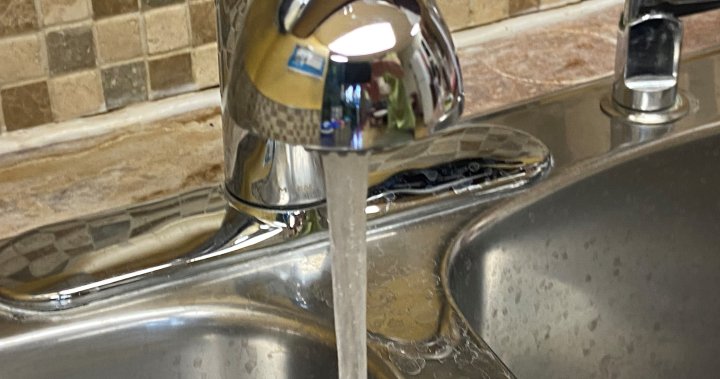There was another delay in the reintroducing fluoride to Calgary’s drinking water.
Fluoride restoration was expected to be completed in September, but the city said construction of required infrastructure upgrades at the Glenmore and Bearspaw water treatment facilities is now expected to be completed in the first quarter of 2025.
Fluoride was removed from the city’s drinking water in 2011, and city officials said the infrastructure was decommissioned and removed after the decision to stop fluoridation.
In a statement to Global News on Friday, a city spokesperson said construction began in September 2023 and the city had projected the system would be ready this fall.
“This date has been set with the understanding that timelines may change due to continued uncertainty with the global supply chain.” the city’s statement said.
“As a result of this global uncertainty and industry resource competition, we now expect the system to be operational by Q1 2025. This date also reflects a comprehensive schedule created in collaboration with our general contractor and management of the city,” the statement continued.
In November 2021, city council approved the reintroduction of fluoride after a referendum showed 62% support for the mineral to be added to Calgary’s drinking water.

Dr. James Dickinson joined a campaign in 2021 to restore fluoride to the city’s drinking water.
The latest health and medical news emailed to you every Sunday.
“The water people knew all along that they had to do this. It’s going to be another year and that’s just horrible,” said Dickinson, a professor of family medicine and community health sciences at the University of Calgary.
“There’s a whole group of kids who are growing up without fluoride, and it’s going to show in their teeth,” Dickinson said.
Dickinson said it’s a very rare amount of fluoride added to drinking water.
“It’s about looking after everyone in society. It’s all very well to say “no, we can do this individually”, but it’s much easier and much better to do it as a society, as a whole. It’s about taking care of each other,” Dickinson said.
“We have a whole range of people who can’t afford toothbrushes. It’s really an easy thing,” Dickinson said. “Just a very small amount of fluoride and it makes a difference to a lot of people.”
Reintroducing fluoride to Calgary’s drinking water is not only taking longer, but also more expensive than originally anticipated.
Implementation costs for the infrastructure at the two water treatment plants have increased to $28.1 million, up from the original estimate of $10.1 million.

A new study conducted by dental researchers at the University of Alberta, published this week in the Canadian Journal of Public Health, shows that stopping water fluoridation appears to negatively affect the oral health of young children, “potentially leading to a significant increase in dental treatments caries-related general anesthesia.”
The study revealed oral health disparities in the pediatric population studied in Calgary and Edmonton.
It looked at the rate of caries-related, also known as caries, dental treatments under general anesthesia (GA) in fluoridated and non-fluoridated communities in Alberta between 2010 and 2019.
The study included children living in Calgary (non-fluoridated) and Edmonton (fluoridated) who underwent caries-related dental treatments under GA in publicly funded facilities.
The results showed that among 2,659 children who received caries-related treatments under GA, 65% resided in the non-fluoridated area.
The analysis revealed that discontinuing water fluoridation was significantly associated with an increased rate of caries-related gastrointestinal events per 10,000 children in both age groups (0-5 and 6-11 years), with a stronger effect in 0-5-year-olds in non-fluoridated areas.
Dickinson said the study confirms what was already known.
“Dentists have been telling us since we lost fluoride that more and more young children are coming in with bad dental problems. It is rising overall in the community and this new paper speaks to the worst end of the scale. “The ones that were so bad, they needed general anesthesia to get major dental work done,” Dickinson said.
He said the study shows rates of dental procedures under anesthesia have steadily increased in Calgary since the loss of fluoridation.
For children under five, the rate of dental treatments under anesthetic doubled from 22 per 100,000 in 2010-11 to 45 per 100,000 in 2018-19.
Prices went from 18 to 24 in Edmonton, where the water is fluoridated.
Dickinson said even a single cavity that occurs in a child’s permanent teeth can have lifelong effects.
“At some point in the process you end up with a tooth that needs a crown or maybe a tooth that reaches a root canal. It’s very expensive, so starting with healthy teeth as kids makes a huge difference in lifetime and dental care costs,” Dickinson said.

© 2024 Global News, a division of Corus Entertainment Inc.

